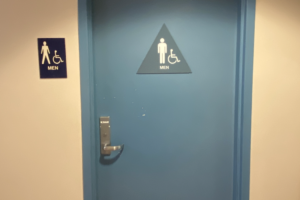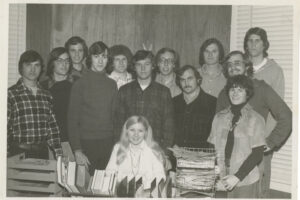Every week, my 82-year-old grandfather and his friends each make a pie to bring to their
“Pie Club”. Something about the name sounds old-fashioned, like a yellowed image in some 50s
cookbook, complete with the manicured hands of a housewife holding the pie dish; but Pie Club is more than a nostalgic activity for retirees. It represents the benefits of baking —caring for one’s mental health and connecting with peers— for people of all ages.
According to a 2021 study by the Graduate School of Education at Harvard University,
loneliness and mental health issues are increasing in the United States, especially among young
people. Seniors are also at high risk for social isolation and health issues that stem from it,
according to the Centers for Disease Control and Prevention.
Helen Tafoya is a clinical counselor who runs a rehabilitation program for people with mental illness, which is another group of people that can be at risk for social isolation. In an interview with the Wall Street Journal, she said “some people with mental illness feel socially isolated, so having an excuse to be in the kitchen or around a table with others can boost social skills and confidence.”
This is why the social aspect of the Pie Club and baking in general, is so beneficial. In the case of The Pie Club, it gives individuals who are at risk for social isolation the ability to gather around food.
This attitude toward cooking has been imprinted on me by my older family members. I did not have the patience for pie as a kid, but I remember making cookies all the time. Baking
with family and sharing the fruits of our labor was how we connected with each other and it also
allowed us to reach out to our neighbors.
Every Christmas, my mother and I spent days making hundreds of candies and baked goods to give to our neighbors and extended family and we baked for community events around the year. It was a great way to stay connected with people and brought joy to everyone involved.
In addition to the social benefits, baking can be therapeutic. According to a Wall Street Journal article on baking during the pandemic, baking ingredient sales rose 25% in 2020, with many people using it as a form of relaxation. And as demonstrated by Helen Tafoya’s rehabilitation program, occupational therapists can use cooking classes to treat mental illness.
In an interview with the Wall Street Journal, Jacqueline Gollan, an associate professor of psychiatry at Northwestern University said, “If an activity is defined as personally rewarding or giving a sense of accomplishment or pleasure, or even seeing the pleasure of that pumpkin bread with chocolate chips making someone else happy, then it could improve a sense of well-being.”
That sense of accomplishment is built into the Pie Club, as the members get to bring the pies they baked and share them with the group.
The therapeutic benefits of baking were something I found myself needing in my first year of college, halfway through the COVID-19 pandemic and 1,500 miles from home.
I was worried about spending too much money on the hobby and carrying ingredients from the grocery store was a hassle with no car, so I only bought what I absolutely needed; which is why I found myself sitting on the floor of my dorm, holding a bowl between my legs and trying to crush up sugar cubes to use for cookies.
My mom had bought the cubes for me to use in tea when she dropped me off and I wasn’t about to buy a whole bag of granulated sugar when I had usable sugar right there, just in the wrong form. It turned out that sugar cubes are harder than they look, and it didn’t occur to me to pour a little water on them to soften them up, so it took ten minutes and a bent spoon before I could mix the sugar in.
My first batch didn’t turn out great. I didn’t have a roommate due to pandemic housing restrictions, so I ate a dozen misshapen cookies by myself over the course of the next few days. Still, there was something about baking, going through the rhythms of it, that left me feeling a little calmer by the end. I kept baking and when they turned out I’d leave a few on the kitchen counter with a note to share. It felt satisfying to pick up the empty plate the next day. Sometimes, when I was in the kitchen, I’d chat with people who stopped by to use the sink or microwave.
One afternoon, a couple of friends and I hosted our own Pie Club in our dorm. We had to get creative since we had limited cooking tools. At one point, we had to make a pie tin from scratch out of aluminum foil. But we came out at the end with several pies we shared with the other girls in our dorm and a sense of accomplishment. When we were able to eat our pies, we all agreed that the time it took to make them was well worth it. I couldn’t imagine why pie might’ve gone out of fashion.
Written By: Lily Damron







